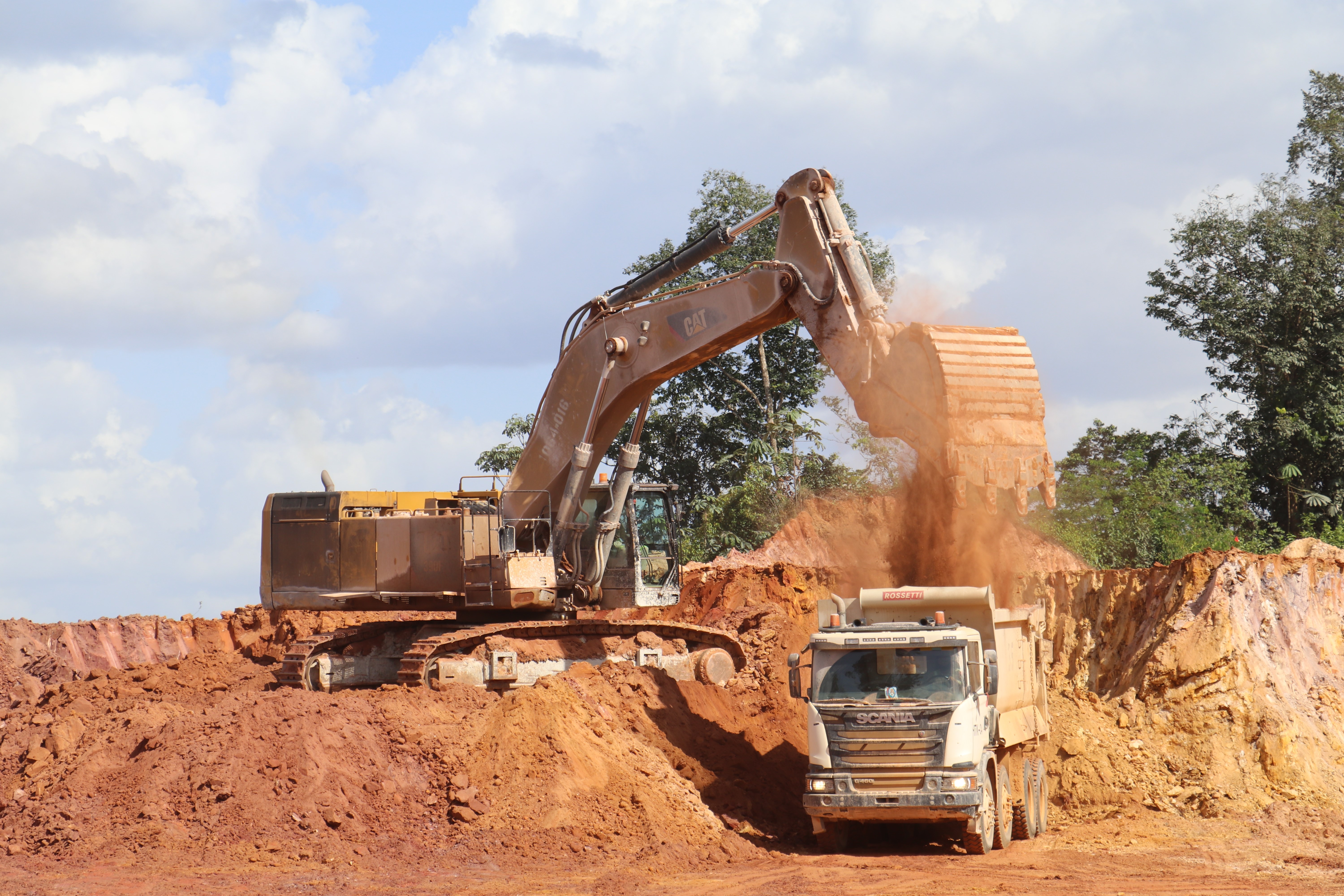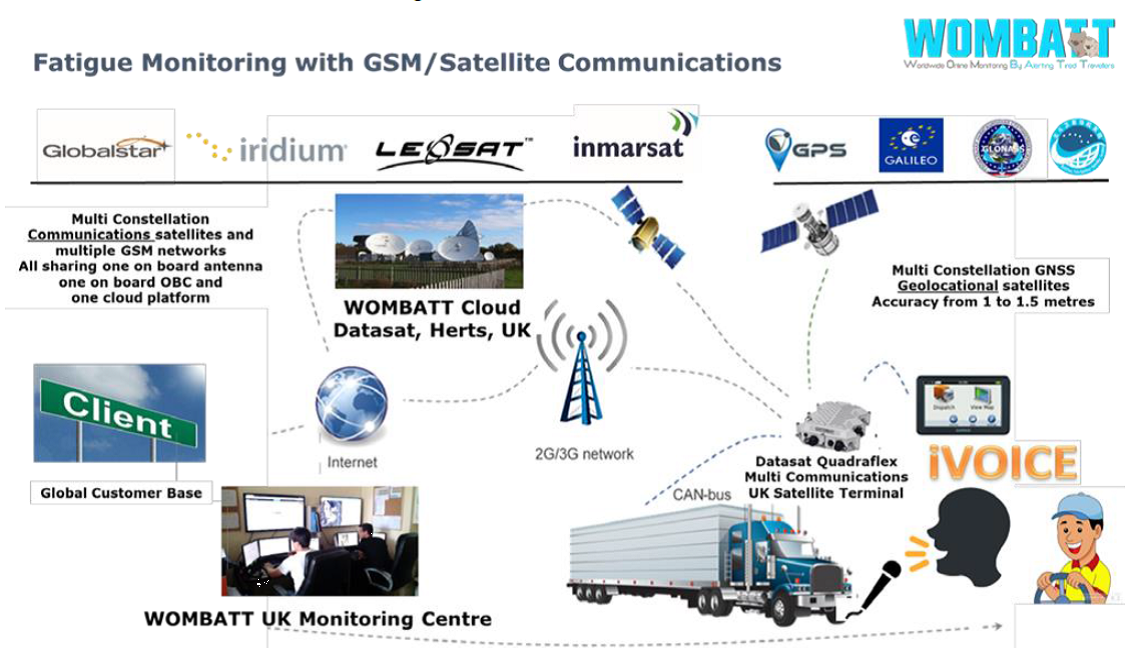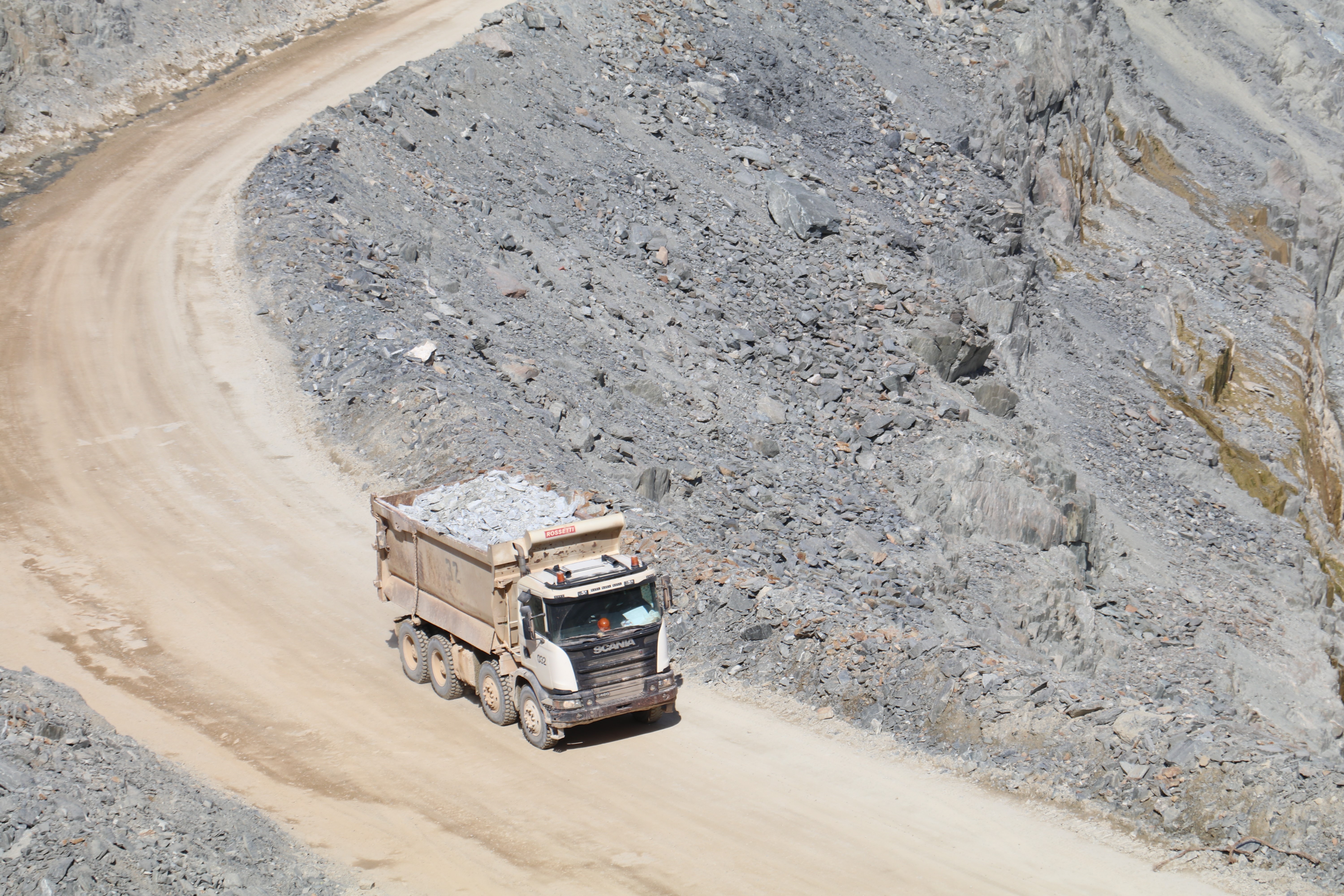
Objectives of the service
Operator fatigue is a serious problem in many occupations (in particular where human lives are at risk), for example aerospace, mining and transportation, leading to many preventable accidents. Many technologies have been proposed to assess the level of fatigue in operators, but these are often intrusive, expensive and unreliable. iVOICE is a technology for tracking changes in fatigue through changes in the voice that occur through the day. It was developed at University College London by the Centre for Space Medicine and the Speech, Hearing and Phonetic Sciences Department as part of an ESA-funded study looking into the health of astronauts. iVOICE promises to assess fatigue through simple audio recordings of the operator without any specialist equipment, at low cost and high reliability. The iVOICE technology integrates the voice analysis method into a complete fatigue management service provided to the mining industry by WOMBATT Fatigue Management.

Users and their needs
The targeted users of the WOMBATT iVOICE fatigue management system are mine operators concerned about the health and safety of their workers, wanting to reduce the likelihood of accidents caused by fatigue. Such users require systems that:
- actively prevent accidents by maintaining a level of awareness in operators of the dangers of fatigue,
- can assess whether an operator is likely to be affected by fatigue,
- do not require expensive or intrusive measurement technologies,
- are sufficiently accurate and robust to be trusted by users and employers.
iVOICE is a technology that tracks changes to the fatigue levels of individual operators over hours, days and weeks by monitoring how tiredness affects the voice. This technology is a key part of the fatigue management system in any mining operation (but potentially others) that involves education, screening and monitoring of operators as well as reporting and management procedures for their employers.
During preliminary trials to review user requirements, iVOICE has already been tested in Peru and Guyana and proved to be a promising technology.
Service/ system concept
The fatigue management service involves “fitness for work” testing at the start of each shift for every operator, followed by fatigue monitoring at different times during their shift. The fitness for work assessment involves a start of shift process recording the sleep patterns of the operators, and an initial voice quality measurement. Subsequent assessments are made through the day using voice alone. Voice recordings are made through a smartphone app “iVOICE-Voz” and the recordings are communicated into the cloud for processing using wireless, mobile or satellite communications. The level of fatigue is then communicated back to the operator. If the level of fatigue is too high given the time of day, a message is also sent to the employer, who has established a formal set of procedures to deal with such warnings.

Space Added Value
Mines are often located in very remote regions, without typical communications infrastructure. In addition, a significant population of iVOICE users will beare drivers of trucks and buses making long journeys outside of mobile telephony connectivity. The iVOICE project service can will make use of satellite communications services provided by DATASAT Ltd. to maintain communications between mines, operators and the Wombatt monitoring centre, and geolocational satellites such as Galileo and GPS to keep track of the physical location of users. In addition, the technology behind iVOICE results from previous work supported by ESA’S GSTP programme aimed to monitor astronaut’s fatigue levels via voice pattern changes.

Current Status
The iVOICE feasibility study funded by ESA showed some potential of the iVOICE technology for assessing changes in fatigue from the voice in laboratory-based conditions. The iVOICE demonstration project was therefore proposed to tailor the performance and practical use of this fatigue monitoring technology during normal commercial operations in specific environments such as mining. While the technology had reached a mature level compatible with commercialisation and that pre-trials had been run with great success, the project faced a number of challenges, some of which were caused by the COVID19 pandemic, preventing the final trials from taking place. It was therefore decided to stop the activity. However Wombatt has very good commercial prospects with a number of customers, which should lead to contracts in the near future.



